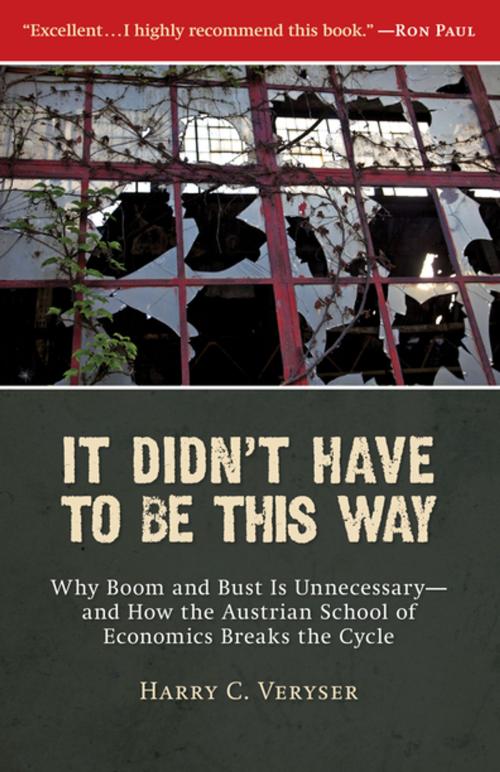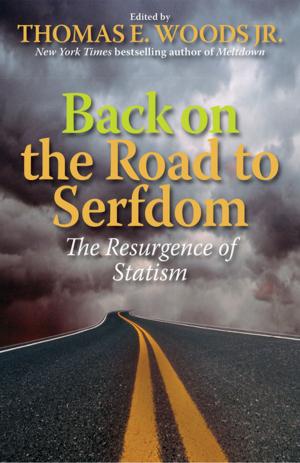It Didn't Have to Be This Way
Why Boom and Bust Is Unnecessary—and How the Austrian School of Economics Breaks the Cycle
Business & Finance, Economics, Economic History| Author: | Harry C. Veryser | ISBN: | 9781497636330 |
| Publisher: | Intercollegiate Studies Institute (ORD) | Publication: | April 8, 2014 |
| Imprint: | Intercollegiate Studies Institute | Language: | English |
| Author: | Harry C. Veryser |
| ISBN: | 9781497636330 |
| Publisher: | Intercollegiate Studies Institute (ORD) |
| Publication: | April 8, 2014 |
| Imprint: | Intercollegiate Studies Institute |
| Language: | English |
“Excellent . . . I highly recommend this book.” —RON PAUL
Why is the boom-and-bust cycle so persistent? Why did economists fail to predict the economic meltdown that began in 2007—or to pull us out of the crisis more quickly? And how can we prevent future calamities?
Mainstream economics has no adequate answers for these pressing questions. To understand how we got here, and how we can ensure prosperity, we must turn to an alternative to the dominant approach: the Austrian School of economics.
Unfortunately, few people have even a vague understanding of the Austrian School, despite the prominence of leading figures such as Nobel Prize winner F. A. Hayek, author of The Road to Serfdom. Harry C. Veryser corrects that problem in this powerful and eye-opening book. In presenting the Austrian School’s perspective, he reveals why the boom-and-bust cycle is unnatural and unnecessary.
Veryser tells the fascinating (but frightening) story of how our modern economic condition developed. The most recent recession, far from being an isolated incident, was part of a larger cycle that has been the scourge of the West for a century—a cycle rooted in government manipulation of markets and currency. The lesson is clear: the devastation of the recent economic crisis—and of stagflation in the 1970s, and of the Great Depression in the 1930s—could have been avoided. It didn’t have to be this way.
Too long unappreciated, the Austrian School of economics reveals the crucial conditions for a successful economy and points the way to a free, prosperous, and humane society.
“Excellent . . . I highly recommend this book.” —RON PAUL
Why is the boom-and-bust cycle so persistent? Why did economists fail to predict the economic meltdown that began in 2007—or to pull us out of the crisis more quickly? And how can we prevent future calamities?
Mainstream economics has no adequate answers for these pressing questions. To understand how we got here, and how we can ensure prosperity, we must turn to an alternative to the dominant approach: the Austrian School of economics.
Unfortunately, few people have even a vague understanding of the Austrian School, despite the prominence of leading figures such as Nobel Prize winner F. A. Hayek, author of The Road to Serfdom. Harry C. Veryser corrects that problem in this powerful and eye-opening book. In presenting the Austrian School’s perspective, he reveals why the boom-and-bust cycle is unnatural and unnecessary.
Veryser tells the fascinating (but frightening) story of how our modern economic condition developed. The most recent recession, far from being an isolated incident, was part of a larger cycle that has been the scourge of the West for a century—a cycle rooted in government manipulation of markets and currency. The lesson is clear: the devastation of the recent economic crisis—and of stagflation in the 1970s, and of the Great Depression in the 1930s—could have been avoided. It didn’t have to be this way.
Too long unappreciated, the Austrian School of economics reveals the crucial conditions for a successful economy and points the way to a free, prosperous, and humane society.















